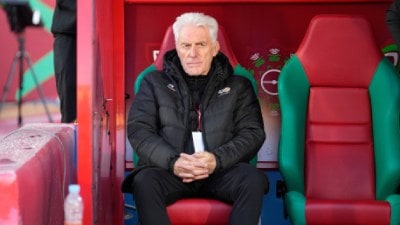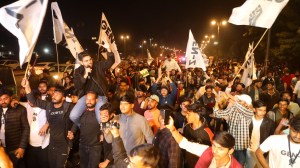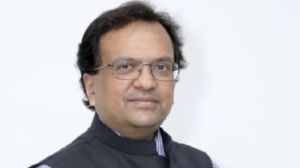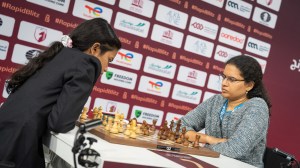Power play
Bijay Chakrabarty,who headed the operations the day the power grid failed,ensured Kolkata was largely unaffected
Though his job presents new challenges every day,the power grid failure on Tuesday was something he did not expect. But 20 years of working with the Calcutta Electric Supply Corporation CESC has taught Bijay Chakrabarty,VP,systems operations,to expect the unexpected and not to crack under pressure.
Our aim was to survive. Compared to the West Bengal state electricity board,ours is a small island,and we generate only 1,000 MW. We knew we had to keep the system alive. Such a small system is highly vulnerable because for every small change in load,there is a change in frequency. We had to see that stability was maintained, he says. At an emergency meeting in the control room on the night of July 31,a survival strategy was devised.
On the day of the crisis,the frequency got very low and we got isolated automatically. That is one of the reasons why we could remain insulated from the outage. I remained in office till midnight that day, says Chakrabarty. The first move was to restore the emergency supplies. It is a tricky job because as we restored power in some areas,we had to shed load from other areas to avoid variation in frequency. But we were confident of tackling the situation because the last time such a thing happened,on July 20,2000,we had handled it satisfactorily. We were better off this time because now its more stable as the grids are connected. In the 90s,systems were isolated.
Sixty-year-old Chakrabarty joined CESC in 1977. He wakes up at 6 in the morning and is in office by 9. He is responsible for planning operations in advance,but things do not always work according to plan and he has to fine-tune them everyday,every hour,every minute.
Chakrabarty says he has trained himself to stay cool and deal with emergency situations. There have been instances when I have had to drive my car back to office in the dead of night. So it is necessary to keep your cool. We keep telling ourselves that whatever happens,the sky is not falling and the issue has to be resolved, he says.
He still remembers the day Mother Teresa died in 1997. People from across the world were to visit the city. Her body was kept at a cold storage in Park Circus area,where the power had snapped and could not be restored immediately. I returned to office around midnight. We restored power supply in the early hours the next morning.
Sitting in front of a computer,Chakrabarty monitors the electricity generation and supply across the city and looks out for any abnormal signals. Usually,the peak hour is at 7 p.m.,but during the summer months,like in May and June this year,demand peaks in the afternoon, he says.
When at his Elgin Road home,Chakrabarty says,he tries to keep his family away from his work. On holidays,he plays tennis,goes to clubs and shops for groceries and fish. The only time he is heard talking shop at home is when he gets an emergency call from officeor when friends and relatives call him up for their minor problems,forgetting that he only handles major operations. People ask me questions like,My bill has soared this month. Would you look into it? or My meter is not functioning. Will you help change it?, he says.
The coming months will be challenging,Chakrabarty says,especially with the puja festivities. We need to ensure
that puja celebrations across the city are not marred by a power failure, he says.
- 01
- 02
- 03
- 04
- 05































